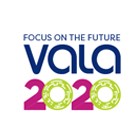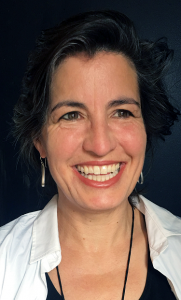 Who is keeping house, tending the garden, and raising the children while AI is out marauding?
Who is keeping house, tending the garden, and raising the children while AI is out marauding?
VALA2020 PLENARY SESSION 5
Thursday 13 February 2020, 9:00 – 10:10
Catherine Nicole Coleman
- Stanford University
- Digital Research Architect
![]()
Please tag your comments, tweets, and blog posts about this session: #vala2020 #p5
View the video of the presentation here:
 Abstract
Abstract
The social applications of AI most prevalent today weaponize convenience and distraction to very destructive ends. Incisive investigative reporting tells a story of individuals and institutions wielding AI for data collection and analysis to narrow choices, increase profits, and subjugate the populace. But of course AI isn’t doing that, people are. We can and should employ this technology in ways that reflect the ethos of the library; that support research, preserve our cultural heritage, nourish the soul, and contribute to the growth of human knowledge.
AI reveals patterns and offers predictions based on the information fed into the system. But it is trite and simply inaccurate to fall back on the axiom: garbage in, garbage out. In libraries we know that one person’s garbage might be treasure to a researcher; something that can unlock insights and lead to new discoveries. The opportunity that AI offers is the ability to process mountains of information very quickly and to assist with repetitive tasks. Integrating AI into our expert practices can spark new ideas about how to describe things, how to contextualize them, how to maintain them and how to improve discovery. We desperately need new tools in libraries to keep up with and creatively extend our work. And our work is essential to a safe and healthy civil society.
This talk will offer some practical advice about how to get started.
Biography
Catherine Nicole Coleman is Digital Research Architect for the Stanford University Libraries and Research Director for Humanities + Design, a research lab at the Center for Spatial and Textual Analysis. Nicole works at the intersection of the digital library and digital scholarship as a lead architect in the design and development of research services. She is currently leading an AI initiative within the Library to make the collections of maps, photographs, manuscripts, data sets and other assets more easily discoverable, accessible, and analyzable. Her work within Humanities + Design is encoding interpretive method in tools to create human-centered applications of machine intelligence in support of research.
This work is licensed under a Creative Commons Attribution-NonCommercial License.

 Who is keeping house, tending the garden, and raising the children while AI is out marauding?
Who is keeping house, tending the garden, and raising the children while AI is out marauding? Abstract
Abstract Abstract
Abstract